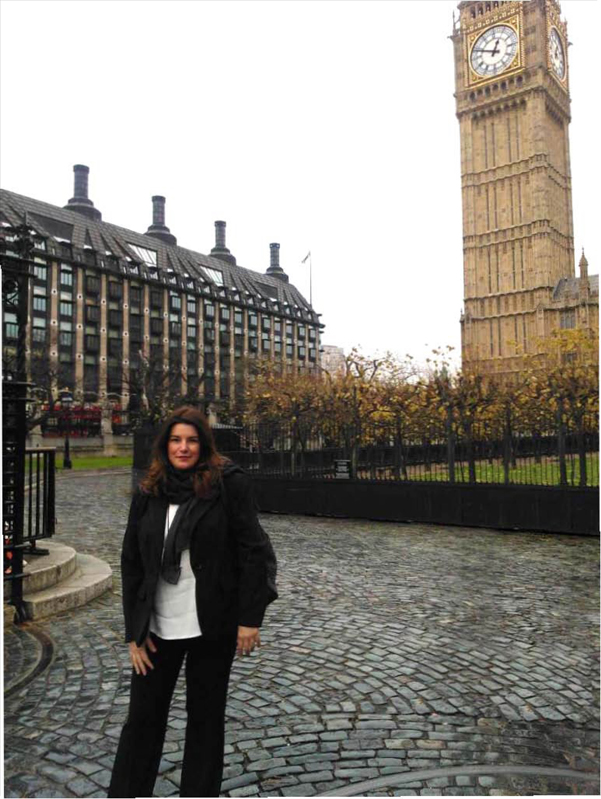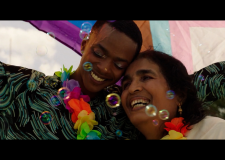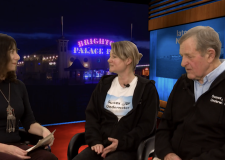Brighton keen to raise autism awareness
Children with autism can find life frightening, confusing and stressful. They may just seem naughty. Campaigners are keen to raise awareness. Frank le Duc reports

Hundreds of children across Brighton and Hove are autistic in a way that impairs their life. Some need help and support but do not always receive it. With funding for public services coming under growing pressure, concerns have been expressed by some parents, carers and professionals. But it’s not just funding that makes a difference. Awareness is also important.
This week, members of Brighton and Hove City Council will be hearing evidence from some of those at the sharp end. The council has set up a scrutiny panel to look at services for children with autism. It is made up of three councillors – Rob Jarrett, a Green, Anne Pissaridou, from Labour, and Andrew Wealls, a Conservative.
They will hear today (Tuesday) from local voluntary organisations such as Amaze and Mascot which offer support and advice. And on Thursday they will hear from parents such as Sam Bayley, who set up Mascot five years ago, and Paula Donovan, an ambassador for the National Autistic Society, when both plan to share personal insights.
One parent who belongs to Mascot said: “Of course, we’re a group that know our children are on the (autistic) spectrum. There must be a number of parents who know something is different for their struggling child but may not realise it’s to do with neuro-diversity. They may not know of Amaze or not consider their child has a special need or condition because it hasn’t been picked up by health workers, nursery or school.
“Children who are thought of as challenging get noticed for their behaviour but not necessarily their needs or they may be withdrawn and not engaged. Few are reaching their potential.” She said she hoped that the scrutiny panel’s work would “reach parents who may know something is wrong but have been told: ‘Don’t worry. Johnny will grow out of it.’
“Until he was 10 years old, we didn’t know our son had Asperger’s, dyslexia or even hypermobility in his limbs. I just thought he was unbearably stubborn, had weird bendy hands (didn’t link this to being told off at school for poor handwriting) and, as I have difficulties with spelling, I didn’t pick up on his. And I think of myself as a savvy parent, so how well do schools notice the children with masked difficulties!”
Mascot will be presenting a survey of its members’ experiences of using local schools and health services which was carried out earlier this year. More than 80 families responded. The work was undertaken after an official customer satisfaction survey had only ten responses. The results suggest that there is room for improvement among council and NHS staff locally.
A similar scrutiny panel on services for adults with autistic spectrum conditions in Brighton and Hove reported in March 2011. The panel, chaired by former councillor Steve Harmer-Strange, recommended more training for family doctors to improve diagnoses. Parents responding to Mascot’s survey have flagged up frustrations around their children’s diagnosis, including the time it can take.
One respondent pleaded for “more help and understanding from professionals”, adding: “I am exhausted and stressed because I have to constantly fight against a system where I feel judged.”
Sam Bayley said that whatever decisions were made by professionals in health and education and whatever processes they followed, they needed to remember that they were dealing with people’s lives.
She said: “These are our children. These are our families. These are our lives. We’re mums and dads. What will save money is if they really do listen to us.”
The scrutiny panel hearings are at Hove Town Hall at 2pm today (Tuesday) and at 10am on Thursday (19 September). They are open to the public.






















Services need to be held up to account. Parents need to be considered as experts in their own children, parents’ views need to be held in the same regard as those of professionals inputting into assessment, diagnosis and support for their children. Services locally for autism, especially those at the higher functioning end, are diabolical. CAMHS does not have the correct expertise even to competently diagnose and has a culture of fobbing many parents off. GPs are not autism-aware and do not even know they are supposed to provide reasonable adjustments. Supports are not advertised, you have to dig around to find out what you are entitled to and then fight tooth and nail for them. It’s appalling.
Working with parents raising an autistic child, I found parents prize the inside view their child’s professional horoscope can give them. It enables them to enjoy a greater understanding of their unique child’s personality and deepest-felt needs, dreams and desires. Repeatedly, I have found this can not only soften their emotional reactions to their child’s autistic behavior, it can help establish in their hearts greater fondness for their child.
Francine Juhasz, Ph.D., author, Your Autistic Child’s Secret Inner Life
@Francine, I suspect you are in the USA. The NHS doesn’t provide professionals who understand children to that degree. Parents know their children best, their quirks, foibles, fears and phobias, behaviours etc., even if they don’t all understand why they are there. The (competent) professionals just put a label on it. If you’re lucky they may support or treat it, but with the NHS, don’t hold your breath.